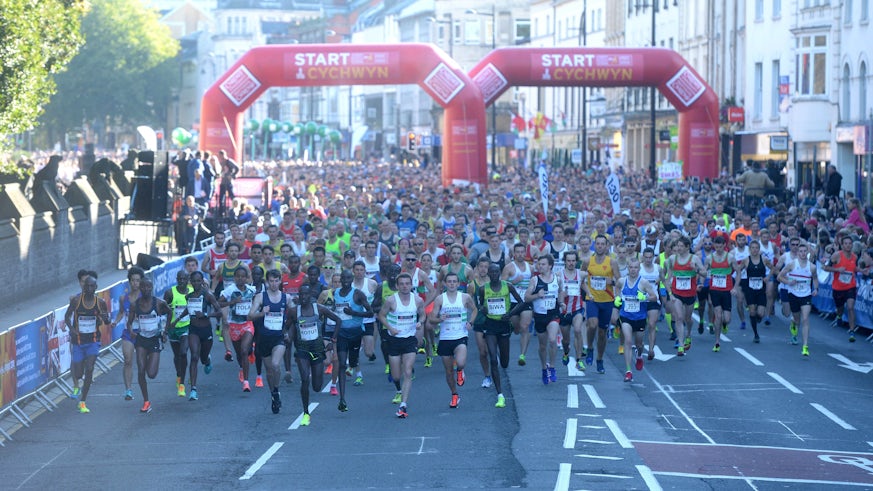Research examines travel to half marathon
15 September 2017

Cardiff Half Marathon organisers Run 4 Wales are aiming to reduce the event’s carbon footprint with the help of Cardiff University research into runners’ and spectators’ travel habits.
The popular race, of which Cardiff University is title sponsor, is the second largest half marathon in the country attracting around 25,000 registered runners from around the UK.
Dr Andrea Collins, of the School of Geography and Planning, and Professor Max Munday, of Cardiff Business School, will examine how runners and spectators travel to this year’s event on 1 October and the economic impact.

Environmental and economic impact
“We have undertaken several studies which have examined the environmental and economic impact of major sport events in Wales and elsewhere in the UK,” said Dr Collins.
“Our focus at the Cardiff University/Cardiff Half Marathon will primarily be the way runners and spectators travel to the event, and also how much money they are spending in the city...”

“Race organisers Run 4 Wales and the University will be able to use the findings and identify ways in which runners and spectators could be encouraged to travel in a more sustainable way, and ultimately reduce the environmental impact of the event in 2018.”
Go green

Run 4 Wales Head of Marketing and Partnerships, Annabelle Mason, said: “We are committed to making Wales’ largest mass participation event, Cardiff University Cardiff Half Marathon, as sustainable as possible...”
“Last year we did more than ever to encourage runners to go green by car sharing, cycling and where possible, walking. We will also continue to work with our strategic partner Recycle For Wales to ensure all runners know what to recycle on the race day and at home.”
“The research carried out by Cardiff University will hopefully help us improve our environmental credentials further and is another example of us working effectively with our title partner.”
A team of Cardiff University students will question spectators on race day about how they travelled to the event and how much money they will spend in the city, while a post-race survey will be sent to runners.
UK Sport has worked with partners, including Cardiff University, to develop its eventIMPACTS tool, a free online toolkit which allows organisers to evaluate the economic, environmental and social impacts of sport and cultural events.
Dr Collins and Professor Munday recently updated the environmental section of the tool, which now includes case studies on the FA Cup Final, Rugby Six Nations, Wales Rally GB, Hay Festival and UK stage of the Tour de France.
“Collaborating with organisations such as Run 4 Wales on the Cardiff Half Marathon, not only enables us to gain access to events on our doorstep but also demonstrate the impact that our research is having,” said Dr Collins.
Share this story
Explore our Institutes, Centres and Groups to learn how our research is addressing sustainability issues.



